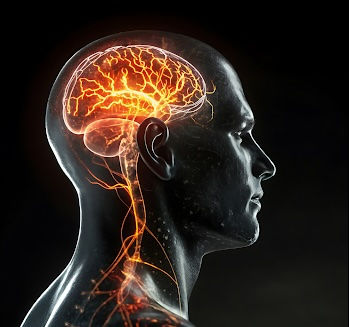Hugs and Our Health
- Marcia Cristiane Perretto

- Sep 22, 2021
- 2 min read
Updated: May 21, 2024
Hugs: something that we definitely realized we have taken for granted over the past couple of years with coronavirus. But did you know that there are actual physical benefits to getting a good hug?
When we receive or give a hug, our bodies release feel good hormones:
Dopamine: the feel-good hormone associated with pleasure
Serotonin: an antidepressant hormone that elevates our mood, helps control anxiety, and can help reduce loneliness
Oxytocin: a “love hormone” that can relieve stress, help with heart health, lower blood pressure, reduce stress, and help with feelings of comfort
So how do these feel good hormones associated with hugs? There are two main systems that our bodies have on high during the day: the parasympathetic and sympathetic nervous system. Our sympathetic nervous system gets jumped when we are stressed or sense some kind of threat in our environment. So when we need to calm down our mind and body, we need our parasympathetic nervous system, which is in control of rest, recovery, and digestion, to kick in.
Research has shown that hugs can activate the part of the brain that is in control of the parasympathetic nervous system, which can help boost our energy levels, help with energy repair, and help our bodies transcend into a more balanced state.
When our parasympathetic nervous system and the feel good hormones released when we get hugs our bodies have the capability of reaching elevated levels of compassion, love, and gratitude, leaving us feeling relaxed and joyful.
Hug Fast Facts:
A 10 second hug helps the body fight infection, ease depression, and help alleviate tiredness
A 20 second hug can help reduce the harmful effects of stress, reduce blood pressure, and help keep our hearts healthy
Hugs help decrease cortisol levels (the stress hormone)
For newborns, hugs can help increase the baby’s weight and improve overall development
Hugs can also build levels of trust and safety
Gentle pressure on the sternum stimulates the thymus gland, which is the gland that works to regulate the body’s production of white blood cells (which keep us infection and disease free!)
Hugs can help with circulation
Be sure to consult with your primary care physician or other medical professionals in regards to your medical concerns. This text cannot and should not replace advice from the patient's healthcare professionals. Any person who experiences symptoms or feels that something may be wrong should seek individual professional help for evaluation and/or treatment. This post is for informative purposes only.
.png)





Comments